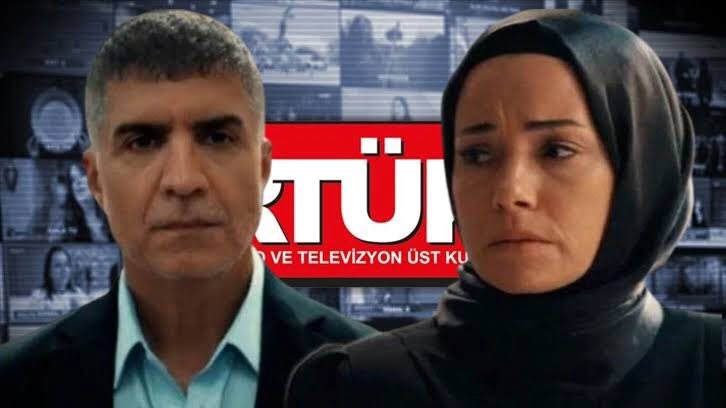The Radio and Television Supreme Council (RTÜK), Turkey’s broadcasting regulator, has imposed a temporary broadcast ban as well as a fine on FOX TV over a series that was slammed by religious groups due to its critical portrayal of Islamic cults in the country, a RTÜK member announced.
İlhan Taşçı, from the main opposition Republican People’s Party (CHP), on Thursday announced on X, formerly Twitter, that FOX TV has to suspend the series “Kızıl Goncalar” (Red Roses) for two weeks and pay 3 percent of last month’s advertising revenues as an administrative fine.
A new episode is aired every Monday, but viewers will have to wait until January 15 to watch the next episode.
“RTÜK has bowed to sects and religious communities,” Taşçı said.
1- RTÜK tarikat ve cemaatlere boyun eğdi!
Tarikat ve cemaatlerin iç yüzünü kurgusal olarak anlatan Kızıl Goncalar dizisine “toplumun milli ve manevi değerlerine” aykırılıktan Üst Kurul % 3 idari para 2 kez de program durdurma cezası verdi. RTÜK’ün verdiği diğer ağır cezalar👇— İlhan Taşcı (@ilhantasci) December 28, 2023
The series, which has been targeted by religious cults and pro-government media organizations, is accused of “violating the national and spiritual values of society.”
Turkish journalist and author Can Dündar, who lives in exile, criticized the pretext used by RTÜK to sanction the series.
“It’s because the national values of society include keeping women at home [and] using religious sects for financial gain … isn’t it, RTÜK?” Dündar said in a sarcastic post on X.
“Toplumun milli değeri”, kadını eve kapatmak, tarikatı ticarette kullanmak, böreğin yağından çalıp haramdan kar yapmak çünkü… Değil mi #RTÜK?#KızılGoncalar https://t.co/grX0j84lIT
— Can Dündar (@candundaradasi) December 28, 2023
The series revolves around the intersecting lives of Levent, a doctor supporting the “Kemalist” principles of Mustafa Kemal Atatürk, a revered military commander who forged a secular Turkey from the ashes of the Ottoman Empire after World War I, and Meryem, a member of an Islamic sect.
The storyline takes a dramatic turn as Meryem fiercely battles to prevent her daughter Zeynep from being forced into a marriage with the son of a religious community leader.
The critical portrayal of scenes involving religious communities has sparked a firestorm of social media debates, garnering criticism and calls for a ban on the show from religious sects and organizations closely associated with the ruling Justice and Development Party (AKP).
Such religious communities account for a significant portion of the AKP grassroots, with their members filling important state positions despite lacking the necessary qualifications.
In addition, the pro-opposition Halk TV received a 3 percent administrative fine over allegations that it presented terrorist acts, perpetrators and victims in a manner that could lead to outcomes serving the objectives of terrorism. Additionally, the channel was hit with a 3 percent administrative fine for its presentation of the LGBT+ individuals.
The SZC television station received a 3 percent administrative fine for a lack of “impartiality” due to its coverage of claims suggesting that Turkish Statistical Institute (TurkStat) employees received bonuses and promotions in exchange for downplaying Turkey’s unemployment figures.
Tele1 was also found to have “defamed individuals,” discussed money laundering in a program and “praised the guilty” and was fined 3 percent for each violation.
KRT TV and TGRT were also given administrative fines by RTÜK.
It is common for pro-opposition news channels in Turkey to face restrictions on their broadcasting through sanctions imposed by RTÜK, whose board members are appointed in proportion to the number of seats held by political parties in parliament, meaning that the ruling AKP currently dominates the agency.
After a failed coup in July 2016, the Turkish government summarily shut down nearly 200 media outlets due to their alleged links to terrorism or their alleged involvement in terrorist propaganda. The post-coup crackdown also included the detention of dozens of journalists, which briefly made Turkey the second worst jailer of journalists in the world after China. Turkey is ranked 165th among 180 countries in the 2023 edition of Reporters Without Borders’ (RSF) World Press Freedom Index, not far from North Korea, which occupies the bottom of the list.


